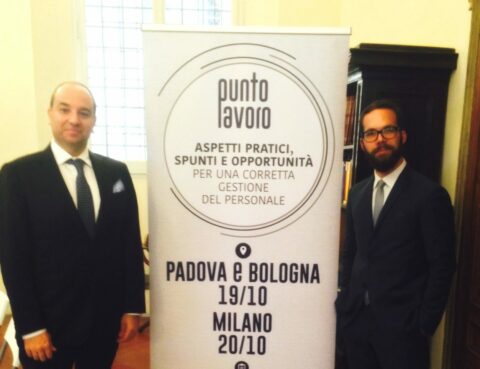The EU Blue Card is a residence permit governed by Article 27 quarter of Legislative Decree no. 286/98 (the so called “Testo Unico Immigrazione”). In our legal system, the European Directive 2021/1883 on the conditions of entry and residence of foreign citizens intending to carry out highly qualified work in an EU Member State was…
The “monitoring” of employees has long been debated by Italian Courts and Scholars in order to interpret and update a law whose original formulation lies in a specific timeframe characterized by great social, cultural and politic conflicts, a context that is also extremely distant from the technological culture which has swept the current labour market….
Pursuant to the provisions of Italian Legislative Decree 151/2015 that partly modified the provisions outlined by the Workers’ Statute with regard to audiovisual equipment and control instruments, the case law of the Corte di Cassazione (Italian Supreme Court) has expressly recognized that the employer may carry out the so-called “defensive” monitoring freely. That is, without…
In Italy, the parties to employment contracts of indefinite duration may agree to incorporate the so-called “stability” clause in the contract through which both (or just one of them) undertake not to withdraw from the signed contract for a set minimum period of time. Except for termination for cause, to which the mandatory rule of…
Road transport occupies a key role in Italy’s economy and undoubtedly holds a position of dominance in the field of handling of goods, consequently creating a labour market ready to accept different types of contracts. Despite current statistics show a considerable decrease of road haulage one-man businesses in Italy in the last five years, some…
Following our newsletter dated 20th December 2017, below are the main changes presented in the text of the draft renewal of the Italian logistics, transport and freight forwarding collective bargaining agreement on 3rd December 2017. In addition to the economic and salary changes that provide for a 108 Euro monthly increase divided into four installments…
In these last days trade unions have finally signed the draft agreement for the renewal of the Italian logistics freight transport and forwarding collective bargaining agreement (CCNL) which expired over 23 months ago and which applies to over 700,000 workers of the sector. The trade unions have explained that the renewal provides substantial economic changes…
The incorporation of ancillary clauses into a non-competition agreement and, in particular, an option clause in favor of the employer and the latter’s entitlement to the right of rescission is a widely debated issue by Italian Scholars and case-law and at present a univocal standpoint does not exist. In the Italian Civil Code the option…
The conference “WORK POINT – practical aspects, tips and opportunities for staff management” took place last 19 October at our Office in Bologna. During the conference, held by Marcello Giordani (Junior Partner of our Milan office – Department of Labour Law) and by Alessandro Necchio (Studio Necchio), some tips were provided for staff management through…
Italian Legislative Decree no. 25/17 was published on 17th March 2017. Through just two articles it has repealed the possibility of accessory work and reintroduced a regime of “full” liability in independent contracts between client and contractor. In particular, Articles 48, 49 and 50 of Legislative Decree 81/15, which provided for accessory work and the…










